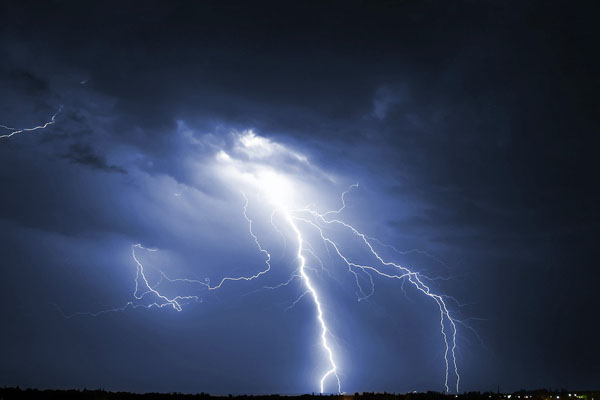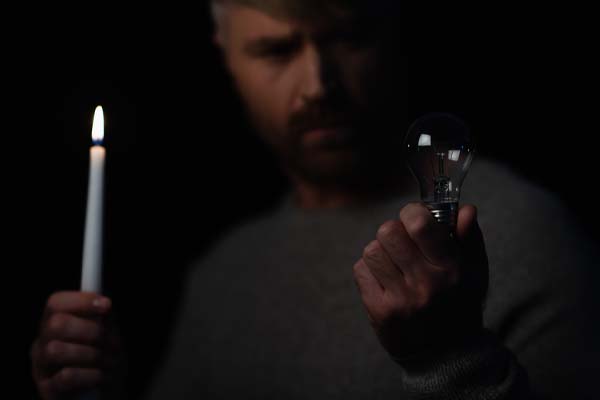Heavy snowfalls across the United States and other increasingly extreme weather during winter have caused a significant increase in demand for backup power generators. These machines can save your life if a power outage happens during winter. Therefore, it is crucial that your standby generator remains in good shape so you can rely on it when you need it most. Still, standby generators, like other machines, will reach the end of their service life at some point, even if they receive proper generator maintenance. Keep reading to learn signs that you need a standby generator replacement.
Signs It’s Time to Replace Your Standby Generator
This article tells you some of the indicators that you require a generator replacement.
Your Standby Generator Has Trouble Starting

Standby generators are made to start as soon as a power outage happens. It may be time to replace your generator if you notice that it delays starting up or has trouble starting at all. It is recommended that you know the likely causes behind your generator not starting and why you should replace it before getting a replacement.
Frequent Backup Generator Failures & Repairs

You may have a generator that often fails. The repair costs may mean you’re spending a considerable amount of money, so you should consider getting a replacement instead. A new generator will help eliminate the expenses you would have spent on frequent major repairs.
An excellent method to ensure your generator remains in good working condition is preventative whole-house generator maintenance. However, get a new generator if it keeps failing even after maintenance. This way, you prevent problems from cropping up during an emergency.
Excessive Fuel Consumption

Different whole-house generators consume fuel differently, as each is a unique model. It would help if you first observed how your generator uses energy, so you familiarize yourself with this process. This will assist you in noticing when your consumption level significantly increases.
It is an indication that your generator is losing speed if you have excessive fuel consumption. Therefore, consider getting an upgrade. A more modern generator offers a more effective and efficient fuel consumption.
Related Article: How Does A Generator Work?
The Age Of Your Power Generator
The size and maintenance of standby generators will dictate their lifespan. A generator that uses diesel can have a minimum lifespan of 12,000 hours and a maximum of 20,000 hours before its engine requires an overhaul.
If power outages happen often, the generator will have more running hours, which can shorten its life expectancy. Replace your generator once it has served you long enough. This ensures that you are prepared when emergencies happen.
Your Needs Have Outgrown Your Backup Generator Size
You may have recently moved to a home with more electrical appliances, or your business has grown. If so, you have increased energy needs. The generator will work harder to meet your new energy needs, causing increased fuel consumption and shortened generator lifespan. Ensure that your generator doesn’t strain as much while your needs are well met by replacing it with a bigger model.
Related Article: How To Size A Standby Generator?
Excessive Standby Generator Wear
All machinery experiences wear and tear. However, poor or no tune-ups can result in faster wear on your standby generator. A generator exposed to debris, dirt, and extreme weather conditions will also have a reduced lifespan.
Replace your generator right away when you see that it is corroding. This is because its engine may be rusting as well. Rust slows down the speed of your whole-house generator, making it unreliable. It may also render it entirely useless at times.
Your Whole-House Generator Is Outdated
Continuous technological advances have resulted in constant generator upgrades. This also means that the standby generator that was the talk of the industry a decade ago may be outdated today.
When an upgrade occurs, the production of old spare parts stops, and the maintenance tools and techniques change. Hence, the manufacturer may not be able to help you when your generator needs repair.
Avoid hassles like these and change with the times. Upgrade to generators with new technology as soon they are introduced into the market.
Related Article: What Is A Standby Generator?
Your On-Demand Generator Produces Excess CO
 The Clean Air Act regulates emissions from generators and other stationary and mobile sources. Therefore, you should be familiar with the laws and regulations to determine what is to be expected from you.
The Clean Air Act regulates emissions from generators and other stationary and mobile sources. Therefore, you should be familiar with the laws and regulations to determine what is to be expected from you.
A report states that there were 655 incidents of fatal non-fire carbon monoxide (CO) exposure from generators between 2005 and 2016. That same period also reported 880 deaths.
The carbon monoxide levels should be measured and recorded often so you can be sure that your generator doesn’t pose a risk to your well-being and the environment. If there are increased CO levels, consider getting a generator replacement.
It is also prudent to invest in a generator with built-in CO safety technology to remain safe from emissions.
Inconsistent Power Supply From Your Standby Generator

Your whole-house generator should provide an adequate and consistent power supply. A generator that is over or under voltage may damage the electrical appliances you have at home. The generator may also produce an unstable power supply when there’s no output voltage. Replace your generator if it doesn’t operate properly even after repairs.
Power Generator Fuel Leaks
Fuel leaks are common but solvable generator problems. However, their consistency may cause fire outbreaks or even explosions. Before deciding whether to get a repair or replacement, determine why the generator is leaking and if it is repairable. If not, replace it. Here are parts to check for leaks:
- Rain-damaged or cracked fuel lines may cause fuel leaks.
- Neglect, puncture, and corrosion may also damage fuel tanks.
- The carburetor bowl and gaskets may have become dry or damaged, affecting the seal and resulting in a leak.
- Poor welding and upkeep of the connections, manufacturing issues, and loose connections may result in pipe failure. This will then cause fuel tank leaks.
- As time passes, the shutoff valves may loosen and become damaged, causing a leak.
Some of these components can be fixed, depending on the damage’s severity. Replace the generator when it cannot be repaired.
Conclusion
Standby generators are essential machines, especially in homes that have frequent power outages.
Ensure that you always have power, even during hours-long outages, by using load banks to test your generator’s performance. Look for the signs listed in this article to determine if you should replace your standby generator.
Tevis Energy’s sister company, Modern Comfort, performs generator installations, replacements, tune-ups, and more. Our technicians can provide you with expert services to ensure that your generator provides you with the reliable backup power you deserve. Call now to schedule an appointment.
Call Tevis Energy For All Of Your Standby Generator Needs

Tevis Energy is a leading generator installation services provider throughout central Maryland and southern Pennsylvania. Aside from backup generator installation, we also offer generator maintenance, repair, and replacements services. We only have the best service contractors on staff, and they are well-trained in the most advanced generator techniques and methods. Call or contact us online today to know more about whole-house generator installation and services. Our industry experts are ready to answer all your generator questions. We offer free, in-home estimates. Call Tevis Energy today!
You can click here to contact us now or call us at (410) 876-6800 to find out more! Click the link to view our service area.
